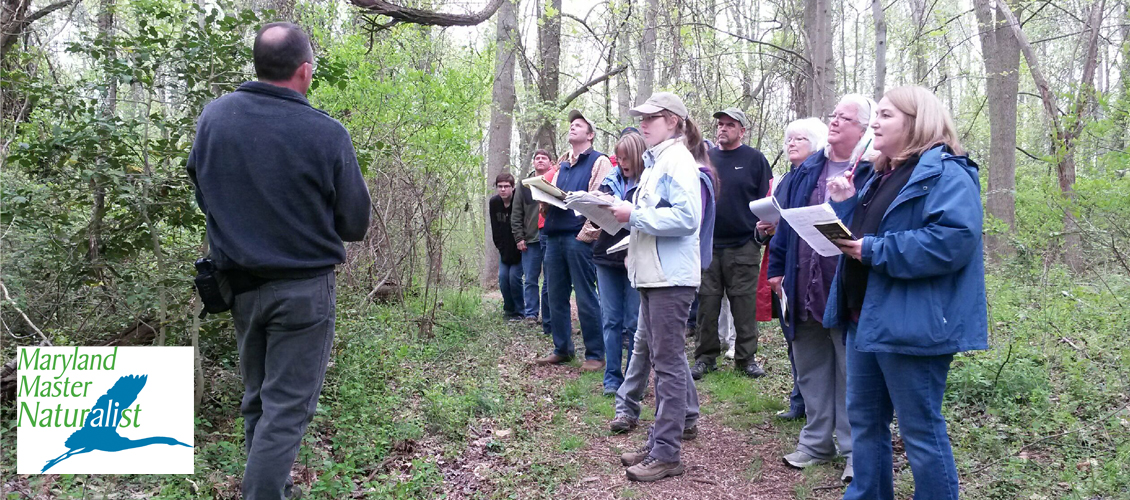
Article by ACLT Habitat Improvement Specialist, Mike Molina. Updated January 2024
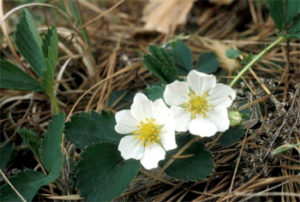
Have you ever found yourself staring at some extravagant plant in your backyard and wondering, “what in the world could this be?”
You go to look it up, but you have no idea how to navigate a dichotomous key or field guide that could potentially help you figure it out.
Well, you are in luck!
Through the University of Maryland’s Extension in conjunction with the American Chestnut Land Trust, you have an invaluable opportunity to gain experience in identifying, learning, and educating others about the vast natural world of plants, trees and wildlife that surrounds and captivates you.
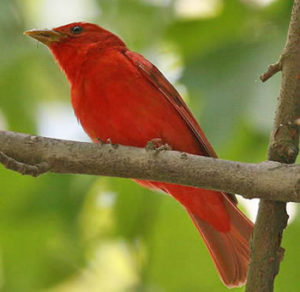 The Master Naturalist program had its genesis in Colorado dating back to the early 1970s. Their mission: to engage citizens as stewards of natural ecosystems and resources through science-based education and volunteer service in their communities. Since its conception, 34 states have adopted the program with Maryland piloting its first trainings back in early 2010. While it started in the piedmont region, the program has expanded across the entire state due to the dedication of various host organizations. The ACLT began training naturalists in 2013 and since that time has graduated roughly 90 trainees. These naturalist graduates have gone on to contribute to the state of Maryland through educating other community members, engaging in projects dedicated towards localized environmental improvement, and obtaining an in-depth awareness of their natural surroundings and the problems that these ecosystems currently face.
The Master Naturalist program had its genesis in Colorado dating back to the early 1970s. Their mission: to engage citizens as stewards of natural ecosystems and resources through science-based education and volunteer service in their communities. Since its conception, 34 states have adopted the program with Maryland piloting its first trainings back in early 2010. While it started in the piedmont region, the program has expanded across the entire state due to the dedication of various host organizations. The ACLT began training naturalists in 2013 and since that time has graduated roughly 90 trainees. These naturalist graduates have gone on to contribute to the state of Maryland through educating other community members, engaging in projects dedicated towards localized environmental improvement, and obtaining an in-depth awareness of their natural surroundings and the problems that these ecosystems currently face.
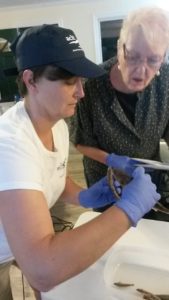
I was lucky enough to participate in this program during my time working with the ACLT. After the introductory course and receiving a binder that resembles a cinder block, I’ll admit I felt slightly unprepared. Course topics range from meteorology to technology resources and cover in depth information that is related to the geographic province you are taking the course in. On top of this, there are weekly readings and group projects that must be completed with the coursework in as little as 3 months.
While at first the course did seem like an overload, it amazed me how efficient the lecturers were at conveying intricate information and their passion in doing so. I quickly realized how engaging this course would be due to their love for teaching and my love for learning about the abundant taxa and ecosystem features throughout my home state. Furthermore, these lectures address serious questions and issues that we face as a state in managing our footprint and natural systems. For example, I learned the importance of planting a variety of native flowers to control food crop pests. A simple piece of information such as this can reduce pesticide costs for small-hold farmers tremendously. Wherever your interests lie, this course grants the possibility to connect these bits of information that embellish the way you view the natural world.
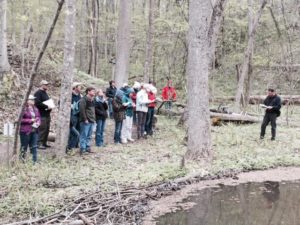 Other great experiences that come with this course are the various field trips you embark on. These trips provide first hand opportunities to witness experts in their dojo. I will never forget hunting herps in the vernal pools near ACLT’s trails, birding in the early morning with my classmates, the canoe trip up Parkers Creek, and identifying various fish species. Each class provides a lecture and a “hands-on” lab portion where trainees can visually work with organisms that they had just studied during the lecture. It is a two-step learning system that helps to reinforce the vast amount of information that is transferred from the lecturer.
Other great experiences that come with this course are the various field trips you embark on. These trips provide first hand opportunities to witness experts in their dojo. I will never forget hunting herps in the vernal pools near ACLT’s trails, birding in the early morning with my classmates, the canoe trip up Parkers Creek, and identifying various fish species. Each class provides a lecture and a “hands-on” lab portion where trainees can visually work with organisms that they had just studied during the lecture. It is a two-step learning system that helps to reinforce the vast amount of information that is transferred from the lecturer.
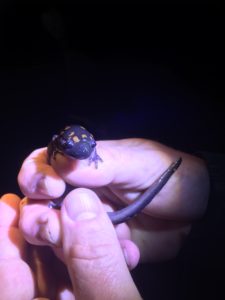 The class culminates in a group project and the completion of a final exam. My project included working with classmates to catalog storm water management systems throughout the Parkers Creek watershed and observe their efficacy. Other projects included vernal pool mapping and designing/restructuring a natural play space at one of ACLT’s trailheads. After the conclusion of the class, participants are expected to complete 40 volunteer hours within the next year to obtain official Master Naturalist certification. With the group project and volunteer opportunities, you gain the potential to reinvest what you have just learned into your local and/or statewide community. This is not only a privilege, but also a responsibility to continually educate yourself and others who are willing to learn. This passing of knowledge is vital in raising awareness towards environmental issues and developing practical solutions to these problems.
The class culminates in a group project and the completion of a final exam. My project included working with classmates to catalog storm water management systems throughout the Parkers Creek watershed and observe their efficacy. Other projects included vernal pool mapping and designing/restructuring a natural play space at one of ACLT’s trailheads. After the conclusion of the class, participants are expected to complete 40 volunteer hours within the next year to obtain official Master Naturalist certification. With the group project and volunteer opportunities, you gain the potential to reinvest what you have just learned into your local and/or statewide community. This is not only a privilege, but also a responsibility to continually educate yourself and others who are willing to learn. This passing of knowledge is vital in raising awareness towards environmental issues and developing practical solutions to these problems.
Each year ACLT facilitates this course and registration is currently open for the upcoming program. Questions? Contact Autumn Phillips-Lewis, ACLT’s Land Manager via email or phone at landmanager@acltweb.org or 410-414-3400.
LEAR MORE & REGISTER FOR THIS YEAR’S TODAY!
This article also published in the Winter 2018 edition of The Watershed Observer, ACLT’s quarterly newsletter.